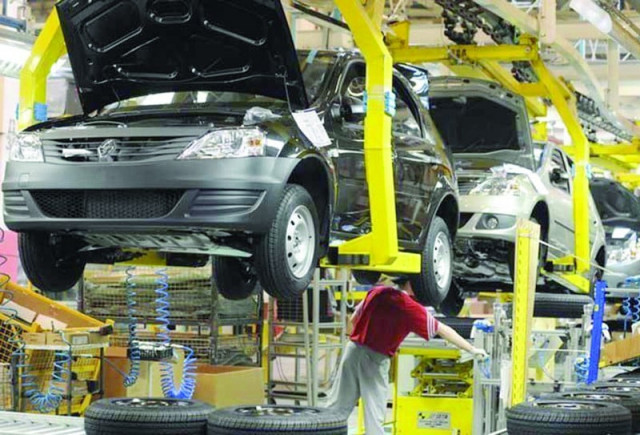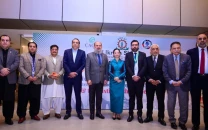Sluggish economy hurts auto sector
Car sales drop by 47% as prevailing uncertainty prevents further investment

The economic slowdown is denting the local auto industry with car sales down by 47% between July and October of the financial year 2023. As a consequence, efforts towards localisation by local vendors have been adversely impacted.
“Unlike other sectors, the auto industry has a ten-fold multiplier effect. Over the last 30 years, original equipment manufacturers (OEMs) have invested extensively in the development of the local engineering base and around labour, of nearly three million people, is associated with the auto sector directly and indirectly,” said Syed Muhammad Ishtiaq CEO of SM Engineering.
“Unfortunately, the worst victims of the decline in the auto sector are part manufacturers and those undertaking localisation efforts,” he added.
Through auto-development policies, numerous auto players entered the local market and it was anticipated that it would further the levels of localisation. However, since 2020, issues surrounding the Covid pandemic, global supply chain disruption, political uncertainty and restrictions on LCs have reversed the impact of previous efforts.
It is pertinent to mention that the auto industry has attained an average of 65% localisation.
“Numerous small and medium sized enterprises (SMEs) and vendors are planning to shut down their businesses due to losses and continued uncertainty,” said Ishtiaq.
There are approximately 1,600 auto parts vendors in Pakistan, out of which 400 vendors belong to a Tier-1 category and are suppliers to the OEM market. Pakistan’s domestic auto parts and accessories industry had an approximate size of $2.9 billion (Rs460 billion) in FY20.
The Engineering Development Board (EDB) has highlighted that if there had not been efforts towards localisation, the import value of all locally assembled cars in Pakistan would stand at $4.2 billion.
“All the stakeholders have to devise a roadmap to address the challenges as the auto sector is termed the ‘mother of all industries’ and through localisation, it has the ability to help the government achieve its macroeconomic goals of GDP growth, employment generation and exports,” added Ishtiaq.
Similarly, auto sector expert Mashhood Ali Khan underscored that “the automotive industry’s survival is quite difficult in the current situation due to political instability”.
“The automotive industry has been in crisis since July due to SBP’s restrictions on imports, which led to a 50% decline in auto volumes,” he noted.
“We hope for political stability by the end of this month, which would augur well for the industry from the new year, otherwise the crisis would persist,” Khan said.
“This crisis has also resulted in unemployment, but there is a solution if all OEMs, government and other stakeholders of the industry thrive on localisation. The ground reality is that local industrialists are not able to invest due to the prevailing political instability,” he lamented.
Published in The Express Tribune, November 23rd, 2022.
Like Business on Facebook, follow @TribuneBiz on Twitter to stay informed and join in the conversation.



















COMMENTS
Comments are moderated and generally will be posted if they are on-topic and not abusive.
For more information, please see our Comments FAQ